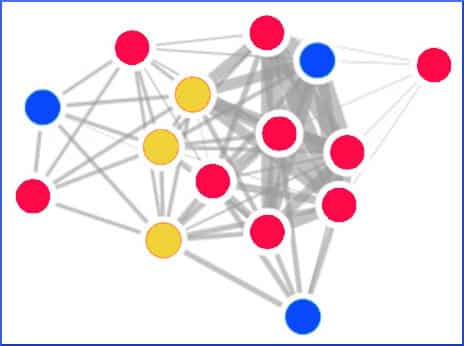
If there is any doubt about the far-reaching influence exerted by the microbiome, check out these typical titles from the website cell.com:
- Effects of the gut microbiota on obesity and glucose homeostasis
- Interactions between Gut Microbiota, Host Genetics and Diet Modulate the Predisposition to Obesity and Metabolic Syndrome
- Pathways in Microbe-Induced Obesity
- The gut microbiota in human energy homeostasis and obesity
- Bile Acid-Activated Receptors, Intestinal Microbiota, and the Treatment of Metabolic Disorders
Speaking of bile acids (BA), this much is known about them:
A dynamic equilibrium is evident between diet, the gut microbiome, and the size and composition of the BA pool. A dysbiotic gut microbiome arising from diet, antibiotic therapy, or disease results in disrupted intestinal homeostasis.
The host and presence of the gut microbiome appear to regulate the BA pool size… [M]icrobes in the gut are proficient in producing secondary BAs that bind to and activate a number of host nuclear receptors, affecting host physiology.
The “host” being referenced here is us, and our guests are trillions of tiny beings who have inveigled their way into becoming the show-runners. Some scientists call the microbiome our second brain, or our second genome.
Some even call the microbiome an organ, just like the heart, liver or skin. Its residents manufacture chemicals that we need and use, that “affect host physiology” — in other words, they change our bodies, sometimes in ways that happen to be beneficial to us, but always according to their own agendas and rules.
Per study referenced above:
These recognized roles include metabolic functions such as vitamin synthesis, regulating the uptake and deposition of dietary lipids, absorbing indigestible carbohydrates, and modulating the intestinal epithelium’s absorptive capacity for optimum nutrient metabolism.
The millions of tiny bugs do many things that can influence our size and weight. Just to give a hint of some processes that take place unknown to us, these excerpts are from the Abstract of a study titled “Nutrient-Sensing Mechanisms in the Gut as Therapeutic Targets for Diabetes,” which is ultimately about reversing insulin resistance.
It describes the duodenum’s talent for sensing nutrient influx and passing the message on, which is supposed to curtail further eating so everything stays in balance. But…
In diabetes and obesity, intestinal nutrient-sensing mechanisms fail to lower food intake and glucose production, leading to a disruption in metabolic homeostasis.
And now here they come, the miniature tenants who are all up in our business:
[G]ut microbiota composition may alter intestinal nutrient-sensing mechanisms to regain better control of glucose homeostasis in diabetes and obesity in the long term… High-fat feeding induces obesogenic microbiota…
Obesogenic microbiota (translation: tiny fat-causing critters) are exactly what we don’t want! This is not the job we pay them to do. How do we ensure that we and they are on the same page?
Your responses and feedback are welcome!
Source: “The Interplay of the Gut Microbiome, Bile Acids, and Volatile Organic Compounds,” NIH.gov, 2015
Source: “Nutrient-Sensing Mechanisms in the Gut as Therapeutic Targets for Diabetes…,” DiabetesJournals.org, September 2013
Photo credit: Matthew Bernhardt

 FAQs and Media Requests:
FAQs and Media Requests: 











